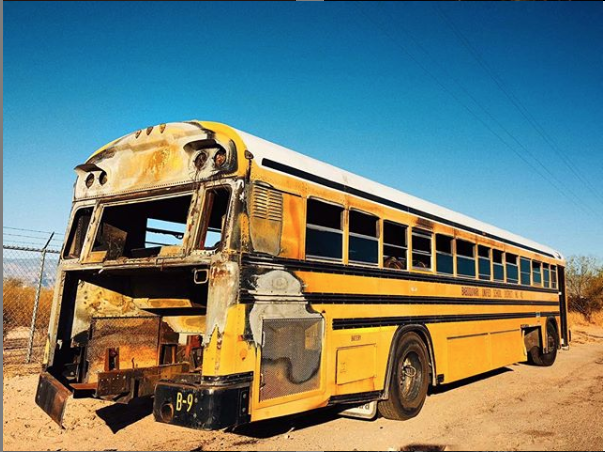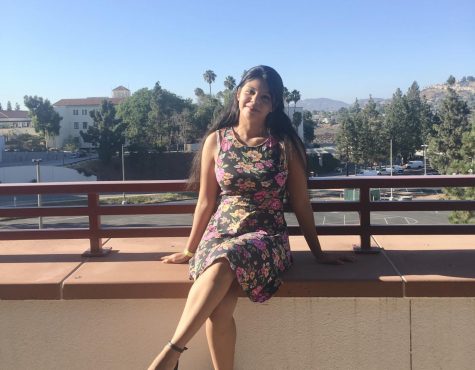Writer Brian Jabas Smith filmmaker Maggie Rawling Smith visited Mesa College on Feb. 6 to share their award-winning documentary based on Brian’s latest book, “Tucson Salvage Tales and Recollections from la Frontera.”
Brian describes his writing as “fiction-style nonfiction,” as the way he shares his stories through journalism is unconventional. Before writing for Tucson Weekly, he wrote for the Phoenix New Times. Later he moved back to Tucson, where he began to collect his stories and essays that became “Tucson Salvage.”
During his presentation, he mentioned that when coming back to Tucson he found himself broken and in pain. As someone who experienced addiction and the sorrow of the hardships of life, he wished to tell the stories of those who were like him: the stories of people who are there, but often go unseen. “I am generally attracted to people who I feel a kinship with” Brian said of the inspiration behind his work. He further revealed, “I just have compassion for people who are struggling.”
To help the audience understand the context of the documentary, Brian first shared two stories from his book. This story came to be as Brian’s editor mentioned to him, “If you’re any kind of writer, you can make a walk to 7-Eleven interesting.” And he did, but instead of a 7-Eleven, he went to the park and met Orly, a homeless man who ran his own makeshift bicycle shop and related services to others in need.
Orly spoke to Brian, sharing his story, and then disappeared as if his last will was to have someone listen to him. During their conversation, he revealed that he once took a bullet to his heart. Brian looked for him the day after their first encounter, but couldn’t find him. Yet he continued to make the stories of his day in the park be known.
The documentary based on Brian’s “Tucson Salvage” continues to share stories based on the theme of shedding light to those who often go unseen — like Brian’s story about Pepper. Similar to the previous story during Brian’s live reading, Pepper was also once homeless. After her divorce, she became addicted to drugs for ten years. The addiction took over her life at the expense of her five children and led her to homelessness.
In the documentary, Pepper said that two years after meeting John, a fellow homeless person, she eventually secured a home. Although, as her health declines, the fear of becoming homeless once more still lingers. She says to the camera, “I feel like I’m becoming a better person. I try to make a difference in the things that I say and how I act to people and how they see me.”
Maggie, when asked about how she chose the stories to include in the film, responded that she followed the guide of sharing stories that the public had not seen before while maintaining respect. Maggie shared, “The stories are beautiful and the people have to be very willing to do them.” She mentions another reason why these stories made the cut. In consideration of the subject’s time already spent with Brian, she know she had to be prepared and know what exactly to adapt. There were other stories Maggie wished to adapt from some of Brian’s work but would not include without explicit consent from the subjects of the stories.
To learn more about their upcoming webseries, “Spent Saints,” you can find Brian at briansmithwriter.com and Maggie at maggiersmith23.com.


